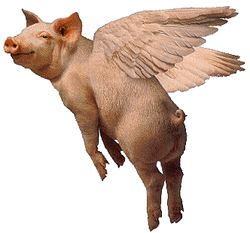3.12. Business Insider
Since it was reformed 40 years ago,
Finland's education system
has frequently been held up as one of the best in the world.
Today, that changed. Tbe OECD released its
PISA global rankings that showed how students in various countries were doing
in reading, science, and math. Finland ranked 12th, just behind Estonia.
That's a big drop. Finland had topped the
PISA rankings in 2000, 2003, and 2006, and consistently ranked near the top in
other years. This year, however, Finnish students had dropped by 2.8% in
mathematics, 1.7% in reading and 3% in science.
"The golden days are over,"
Finnbay, a Finnish news
organization wrote just after the results came out.
The results may be tough to swallow for
Finnish educators.
“The general downturn in learning outcomes
shows that we must take strong action to develop Finnish education. We will
bring in not only experts in research and education and political
decision-makers but also student representatives and parents,’ Krista Kiuru,
Minister of Education and Science, said today.
It's also depressing for those who had
looked towards Finland for education reform. Finland was perhaps unique amongst
the top achievers in PISA as its education system had many quirks which other
countries could imitate; a late start to schooling for children, a lack of
focus on examinations, more recess time, more teachers (who are also better
paid than their U.S. counterparts), and strict rules and limits for private
schools. All of these could, in theory, be exported to the U.S. — a country
which ranked below the OECD
average in every category — or others.
So what happened? Over at the Washington
Post, Pasi Sahlberg, author of the best-selling “Finnish Lessons: What Can
the World Learn About Educational Change in Finland,” offers some perspective.
Here's one key passage:
The unexpected position as a global
educational leader and role model may have disturbed Finland’s previous
commitment to continuous improvement and renewal. Some argue that complacency
and focus on explaining the past to thousands of education tourists have
shifted attention away from developing Finland’s own school system.
Others contend that the high-profile of PISA have led other nations to alter
their curricula. Such observers point to the usage of PISA questions to
shape lessons and coaching students to take PISA-like tests. As a
norm-referenced test, PISA is graded on a curve. What other nations have
learned from Finland and put into practice has necessarily brought down
Finland’s results.
The OECD's own John Bangs, chair of the OECD
trade union advisory committee’s education working group, offered his own
explanation:
“My belief is that Finland and Sweden
[another Nordic state that also saw its ranking drop] are suffering from the
strains of declining economies and the social pressures this causes."
It's also worth noting that Finland's high
PISA rankings had caused some controversy amongst Finnish educators. The
problem was especially acute in mathematics, where many educators disagreed
with the method by which PISA ranked students (PISA focuses on everyday
knowledge, rather than curriculum-based knowledge).
For example, in 2005, more than 200 Finnish academics issued a
warning about complacency as a result of the PISA success. Business Insider
recently emailed with two Finnish education experts — Markku Halmetoja, chief
editor in chief of in mathematics magazine Solmu, and Matti Lehtinen, Finnish
team leader in IMO (International Mathematical Olympiad) — who offered this
explanation for Finland's mathematics problem.
Following a political decision made in 1985,
there is only one math pro- gram in the compulsory phase of education, in the
first nine school years (age 7 to 15). We consider this quite natural in the
primary level: everybody has to acquire the basic arithmetic skills. But the
present situation means that almost all formal algebra and geometry has
disappeared from the curriculum as too difficult for a major part of the
student population. A consequence of this is that upper high school math has to
start almost from scratch, and there is really a long way to go if one hopes to
reach a level sufficient to university studies in any subject involving
mathematics. One indicator of the low level from which the part of student
population to which mathematics is or would be important is the consistently
low results obtained by Finland in high school level international competitions
like the International Mathematical Olympiad.
This aspect is usually ignored by supporters
of Finland's education reforms. Gabriel Heller Sahlgren, a Swedish academic
writing for the Spectator, points out that the "Finland fan
club" rarely talks about another survey called TIMSS that focuses more on curriculum-based
knowledge. Interestingly, the biggest drop in Finland's results came this year
in math (the focus of the PISA exams for the first time in ten years), and Finland ranked
just 12th in math.
Finland's educators themselves are not
really surprised by the rankings, Kai-Ari Lundell, an elementary school
teacher who recently became "teacher of the year" in Finland,
explains, but they are disappointed. "We teach mathematics only four times
a week," Lundell adds. "It's not a lot, especially when we compare
how much they teach maths in some Asian countries."
Of course, everything is relative, and
Finland still ranked highly in reading and science, where it was the top
European nation. But the domination of PISA rankings by Asian countries looks
complete, with countries from the region holding all the top seven spaces in
math, the top five in reading, and the top four in science. Ultimately, this
success might come down to something simple and harder to imitate — hard work.
"Some teachers think that our life in
Finland is so easy, our pupils have forgotten how to work," Lundell says.
"You won't learn mathematics if you don't work enough."
Read more: http://www.businessinsider.com/why-finland-fell-in-the-pisa-rankings-2013-12#ixzz2mQiCQvqN
Adam Taylor
Enkeliporsaan arvio Business Insiderin jutusta:
Kasi. Adam otti yhteyttä sähköpostin kautta ja pyysi kommentteja. Laitoin heti menemään.
Englanti on hiukkasen ruosteessa, kun niin vähän joudun sitä käyttämään.























Ei kommentteja:
Lähetä kommentti